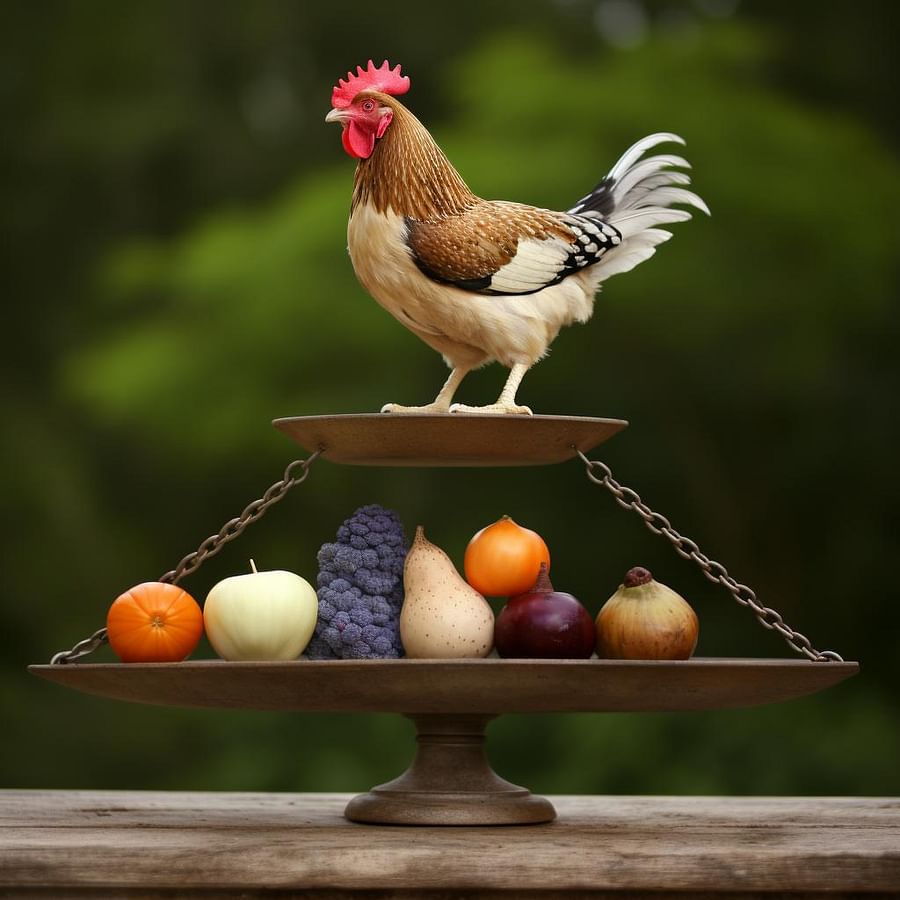Chicken Health Essentials: The Need-to-Know on Antibiotics for Chickens

Embarking on the journey of raising healthy chickens can be both a rewarding and challenging endeavor. One of the most critical aspects of chicken care is understanding the role of antibiotics for chickens. But what exactly are these antibiotics, and how do they contribute to chicken health essentials?
Antibiotics are medicinal substances used to prevent, control, and treat bacterial infections in chickens. They form a crucial part of a comprehensive chicken antibiotics guide, helping to maintain the overall health and well-being of your flock. Just like humans, chickens can fall prey to a variety of diseases, and antibiotics serve as a vital line of defense.
But it's not just about administering antibiotics at the first sign of trouble. Responsible use of antibiotics is key. Overuse can lead to antibiotic resistance, a serious issue that can make infections harder to treat. So, how do you strike the right balance? How can you ensure you're raising healthy chickens without over-relying on antibiotics?
These are the questions we'll be exploring in this article. From understanding the basics of chicken antibiotics to decoding the impact of antibiotics on a chicken's diet, we'll delve into every aspect of this crucial topic. We'll also touch on the controversy surrounding antibiotic use in chickens, providing you with a well-rounded perspective on this essential aspect of chicken care.
Whether you're a seasoned chicken owner or just starting out, this guide will equip you with the knowledge you need to make informed decisions about your flock's health. So, are you ready to dive into the world of chicken health and nutrition? Let's get started!

As we delve further into the world of chicken health essentials, it's important to understand the role of antibiotics for chickens in raising a healthy flock. Antibiotics are not just a treatment tool; they are a vital part of preventive care in your chicken health and nutrition plan. But how do these medicinal substances work, and what makes them so crucial?
Antibiotics work by either killing bacteria or slowing their growth, thereby giving the chicken's immune system a chance to fight off the infection. This can be particularly beneficial in a flock setting, where diseases can spread rapidly. However, it's not as simple as giving your chickens antibiotics whenever they seem unwell. The key to raising healthy chickens lies in understanding when and how to use these powerful tools.
Consider this: Would you take antibiotics every time you had a minor ailment? Probably not. Similarly, chickens should not be given antibiotics indiscriminately. Overuse can lead to antibiotic resistance, making it harder to treat infections in the future. This is why it's essential to follow a comprehensive chicken antibiotics guide and consult with a vet before administering antibiotics.

Remember, antibiotics are just one piece of the puzzle. Good hygiene, proper nutrition, and regular health checks are equally important in raising healthy chickens. These chicken care tips go hand in hand with responsible antibiotic use, creating a holistic approach to chicken health.
So, how can you ensure that your chickens are getting the right nutrition while on antibiotics? And what about the controversy surrounding antibiotic use in chickens? Stay tuned as we explore these topics in the upcoming sections.
Stepping into the realm of chicken health essentials, we now turn our attention to the comprehensive chicken antibiotics guide. This guide will help you understand when and how to use antibiotics for chickens, ensuring you're raising healthy chickens while also being mindful of antibiotic resistance.
Administering antibiotics to your chickens should be a calculated decision, not a knee-jerk reaction to the slightest sign of illness. The key lies in identifying the symptoms and severity of the disease. Is your chicken showing signs of respiratory distress, or is it a simple case of diarrhea? The former might require antibiotics, while the latter could be addressed with changes in diet and hydration.
Once you've determined that antibiotics are necessary, it's important to know how to administer them. Are you equipped to give injections, or would oral administration be more feasible? Remember, the route of administration can affect the effectiveness of the drug.

It's also crucial to adhere to the prescribed dosage and duration of treatment. Under-dosing or premature discontinuation can lead to antibiotic resistance, making future treatments less effective. On the other hand, overdosing can harm your chicken's health and upset their gut flora, impacting their nutrition absorption.
But what happens when your chicken is on antibiotics? How does it affect their diet and overall health? And how can you ensure they're getting the right nutrition? These are some of the questions we'll address in the next section, 'Decoding Chicken Health and Nutrition: The Impact of Antibiotics on a Chicken's Diet'. So, stay with us as we continue to explore the intriguing world of chicken health and nutrition.
Remember, using antibiotics for chickens is a responsibility. It's not just about treating illnesses; it's about raising healthy chickens, preserving the effectiveness of antibiotics, and ultimately, ensuring the sustainability of your flock. So, let's tread this path with care, knowledge, and respect for our feathered friends.
Now that we've delved into the intricacies of using antibiotics for chickens, let's shift our focus to the art of prevention. After all, as the old adage goes, prevention is better than cure. In this section, we'll explore chicken care tips that can help prevent diseases without overusing antibiotics. This is a crucial aspect of raising healthy chickens and ensuring their long-term wellbeing.
Firstly, let's consider the environment in which your chickens live. Is it clean and well-ventilated? Chickens, like any other living beings, thrive in hygienic conditions. Regular cleaning of the coop, providing fresh water, and ensuring proper ventilation can significantly reduce the risk of disease.

Next, let's talk about nutrition. A balanced diet is paramount to chicken health and nutrition. Chickens need a mix of grains, proteins, and greens to stay healthy. A well-fed chicken is a happy chicken, and more importantly, a healthy one. Remember, a strong immune system is the best defense against diseases.

Another essential aspect of chicken care is regular health checks. Are your chickens active and alert? Do they have bright eyes and shiny feathers? Regular observation can help you spot early signs of illness, allowing for timely intervention. But remember, not every health issue warrants the use of antibiotics. Sometimes, simple remedies and lifestyle changes can do the trick.
Lastly, consider vaccination. Vaccines can protect your chickens from many common diseases, reducing the need for antibiotics. Consult with a local vet or poultry expert to understand which vaccines are suitable for your flock.
By focusing on these preventative measures, you can ensure the health of your flock without over-relying on antibiotics. This not only contributes to raising healthy chickens but also helps preserve the effectiveness of antibiotics for when they're truly needed. So, as we navigate the path of chicken care, let's remember that our ultimate goal is to raise a healthy, happy flock in a sustainable and responsible manner.
As we delve deeper into the world of chicken health and nutrition, we must address the impact of antibiotics on a chicken's diet. While antibiotics for chickens can be a vital tool in combating disease, their role in a chicken's diet is a topic of much debate.
Antibiotics, when used judiciously, can help maintain the health of your flock. They can treat bacterial infections, prevent the spread of disease, and in some cases, promote growth. However, the key here is judicious use. Overuse or misuse of antibiotics can lead to antibiotic resistance, a global health concern.
But how does this tie into a chicken's diet? Well, certain antibiotics are administered through feed or water. This means that the antibiotics become a part of the chicken's daily intake. While this can be beneficial in treating or preventing disease, it's important to remember that antibiotics should not replace a balanced diet.
Chickens require a mix of grains, proteins, and greens to stay healthy. A diet rich in these nutrients can boost their immune system, making them less susceptible to diseases. So, while antibiotics can be a part of a chicken's diet, they should not be the mainstay.
It's also worth noting that the use of antibiotics can impact the gut health of chickens. Antibiotics can disrupt the balance of gut bacteria, which can affect a chicken's ability to digest and absorb nutrients. This is yet another reason why antibiotics should be used responsibly and under the guidance of a poultry expert.
So, as we navigate the path of raising healthy chickens, let's remember to balance the use of antibiotics with a focus on good nutrition. After all, a well-fed chicken is a healthy chicken. And a healthy chicken is a happy chicken.
As we continue our journey through this comprehensive chicken antibiotics guide, let's strive to raise our flocks in a manner that respects their health, their happiness, and the environment. Because at the end of the day, isn't that what being an expert chicken keeper is all about?
As we delve into the controversy surrounding the necessity of antibiotics for chickens, it's crucial to remember that the answer isn't black and white. The use of antibiotics in poultry farming has been a contentious issue for years, with arguments on both sides of the fence.
On one hand, antibiotics have been hailed as a lifesaver for chickens, helping to combat bacterial infections and prevent the spread of diseases. They can be a powerful tool in maintaining the health of your flock, especially in large-scale poultry farming where the risk of disease outbreak is higher.
On the other hand, the overuse and misuse of antibiotics in chickens have raised serious concerns. Antibiotic resistance is a global health issue that's been linked to the indiscriminate use of antibiotics in livestock. When antibiotics are used excessively, bacteria can develop resistance, rendering these drugs ineffective. This not only jeopardizes the health of your chickens but also poses a risk to human health.
So, what's the verdict? Are antibiotics necessary for raising healthy chickens? The answer lies in balance and responsible use. Antibiotics should not be the first line of defense but rather a part of a comprehensive chicken health essentials plan.
Remember, a healthy diet is the cornerstone of chicken health and nutrition. A diet rich in grains, proteins, and greens can boost a chicken's immune system, making them less susceptible to diseases. Coupled with good hygiene practices and regular health checks, this can significantly reduce the need for antibiotics.
When antibiotics are necessary, they should be used under the guidance of a poultry expert and in accordance with a well-thought-out chicken antibiotics guide. This way, we can ensure that we're raising healthy chickens without contributing to the problem of antibiotic resistance.
As we continue our journey in understanding and caring for our chickens, let's strive to make informed decisions that respect their health, our health, and the health of our planet. After all, isn't that what being an expert chicken keeper is all about?

As we draw the curtain on our exploration of antibiotics for chickens, we are reminded of the delicate balance that exists in the world of poultry farming. It's a balance between safeguarding the health of our chickens and preserving the effectiveness of antibiotics for future generations. It's a balance that requires knowledge, responsibility, and a deep respect for the welfare of our feathered friends.
Indeed, the judicious use of antibiotics forms a crucial part of the chicken health essentials. But it's equally important to remember that antibiotics are not a panacea. They are not a substitute for a healthy diet, good hygiene, and regular health checks. They are a tool to be used wisely and sparingly, as part of a comprehensive chicken antibiotics guide.
So, how do we strike this balance? How do we ensure we're raising healthy chickens without contributing to the global problem of antibiotic resistance? The answer lies in education, vigilance, and a commitment to best practices in chicken care.
Let's continue to educate ourselves about chicken health and nutrition. Let's stay vigilant about the signs of illness in our flock, and consult with poultry experts when in doubt. Let's commit to using antibiotics responsibly, only when necessary, and always under expert guidance. And let's remember that the health of our chickens is intrinsically linked to the health of our planet.
In the end, it's not just about raising chickens. It's about raising awareness, raising standards, and raising our voices for the responsible use of antibiotics. Because every step we take towards responsible antibiotic use is a step towards a healthier, safer world for us all.
So, as you embark on your journey as an expert chicken keeper, remember this: You have the power to make a difference. You have the power to balance chicken health with responsible antibiotic use. And you have the power to shape the future of poultry farming, one chicken at a time.
Are you ready to take on this responsibility? Are you ready to become a true expert in chicken care? The choice is yours. Choose wisely, for your chickens, for yourself, and for our planet.

Post a comment